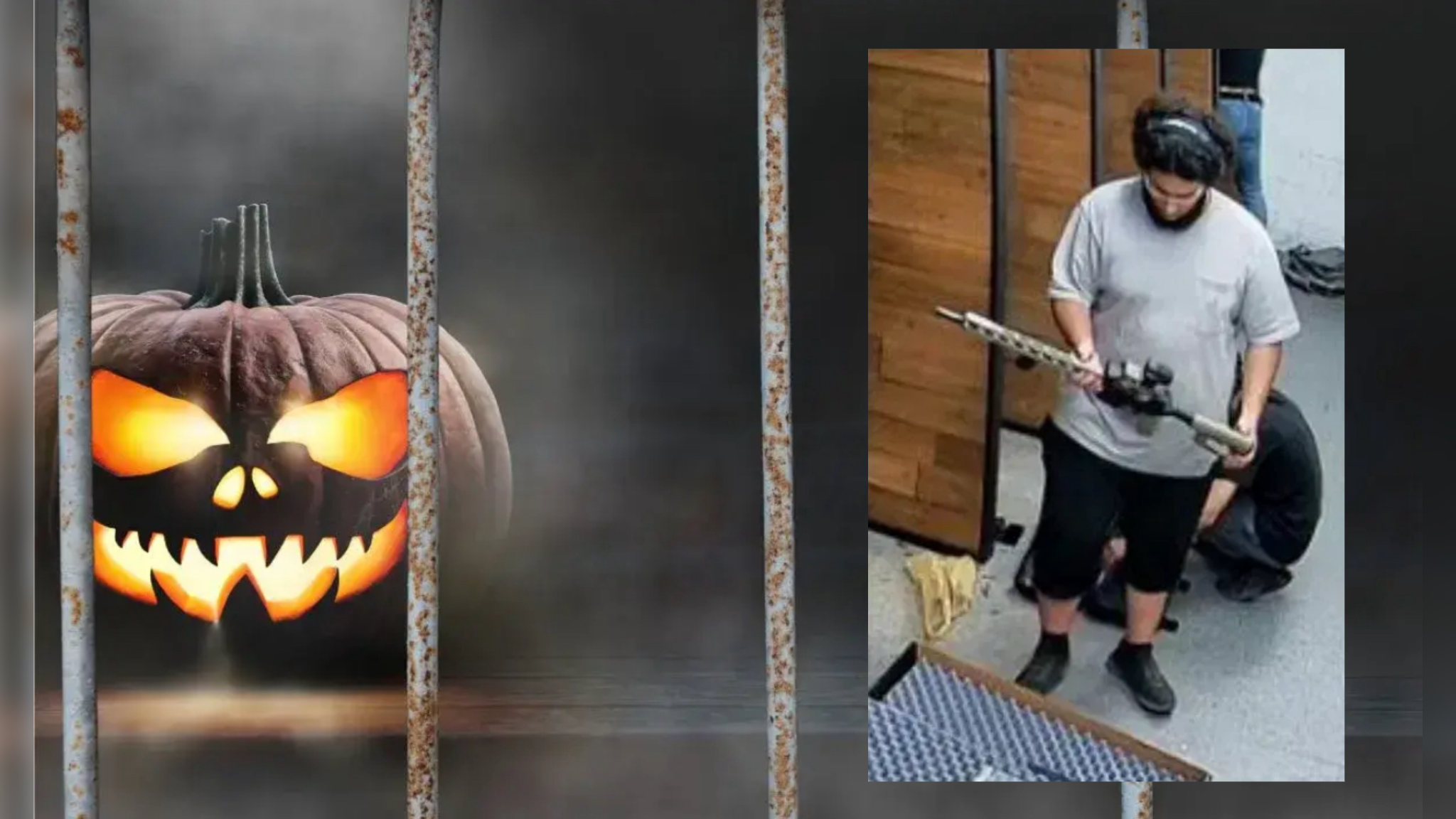
Federal authorities say they thwarted an ISIS-inspired terror plot targeting LGBTQ+ bars in Detroit over Halloween weekend, arresting two young men accused of planning a mass shooting they code-named “Pumpkin.” The alleged plan hatched in encrypted chats and fueled by anti-LGBTQ hatred was foiled before it could unfold, but the revelation has left Detroit’s queer community shaken, furious, and determined to turn survival into defiance once again.
Federal authorities say they’ve prevented what could have been a night of unspeakable terror. Two Michigan men, both barely old enough to vote were charged in an alleged ISIS-linked plot to carry out a mass shooting targeting LGBTQ+ bars in Detroit over Halloween weekend. The planned attack, code-named “Pumpkin,” was stopped before it could begin.
According to a federal criminal complaint unsealed Monday, Mohmed Ali and Majed Mahmoud face charges of “receiving and transferring, and attempting and conspiring to transfer, firearms and ammunition knowing and having reasonable cause to believe that the firearms and ammunition would be used to commit a federal crime of terrorism.” If convicted, the pair could face up to 15 years in prison and a $250,000 fine.

Both men appeared in federal court Monday and are being held without bond until a November 10 detention hearing. Authorities say their alleged plan mirrored ISIS’s coordinated Paris attacks of 2015, the kind of large-scale violence designed to shatter communities and spread fear.
Investigators say the plot began forming in September and intensified as Halloween approached. The criminal complaint details encrypted messages between the suspects and an unnamed juvenile identified as “Person 1” or “Athari,” who allegedly urged the others to act quickly.
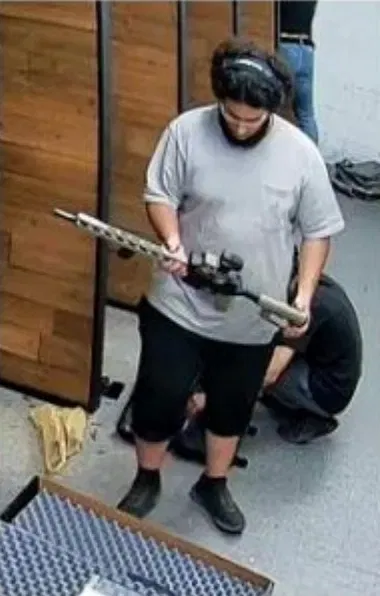
“So ya, I talked to my brothers. We are going to do pumpkin,” the minor allegedly wrote.
The FBI alleges that Ali and Mahmoud scoped out several potential locations in Ferndale, a Detroit suburb known for its LGBTQ+ bars and nightlife. The pair reportedly practiced at local shooting ranges, while also purchasing rifles, shotguns, tactical vests, and over 1,600 rounds of ammunition.
Federal agents executed search warrants at their homes and a Dearborn storage unit last Friday, seizing multiple firearms, GoPro cameras, and tactical gear.
Attorney General Pam Bondi praised investigators for what she called “heroic prevention,” saying, “The FBI acted before innocent lives were lost.”
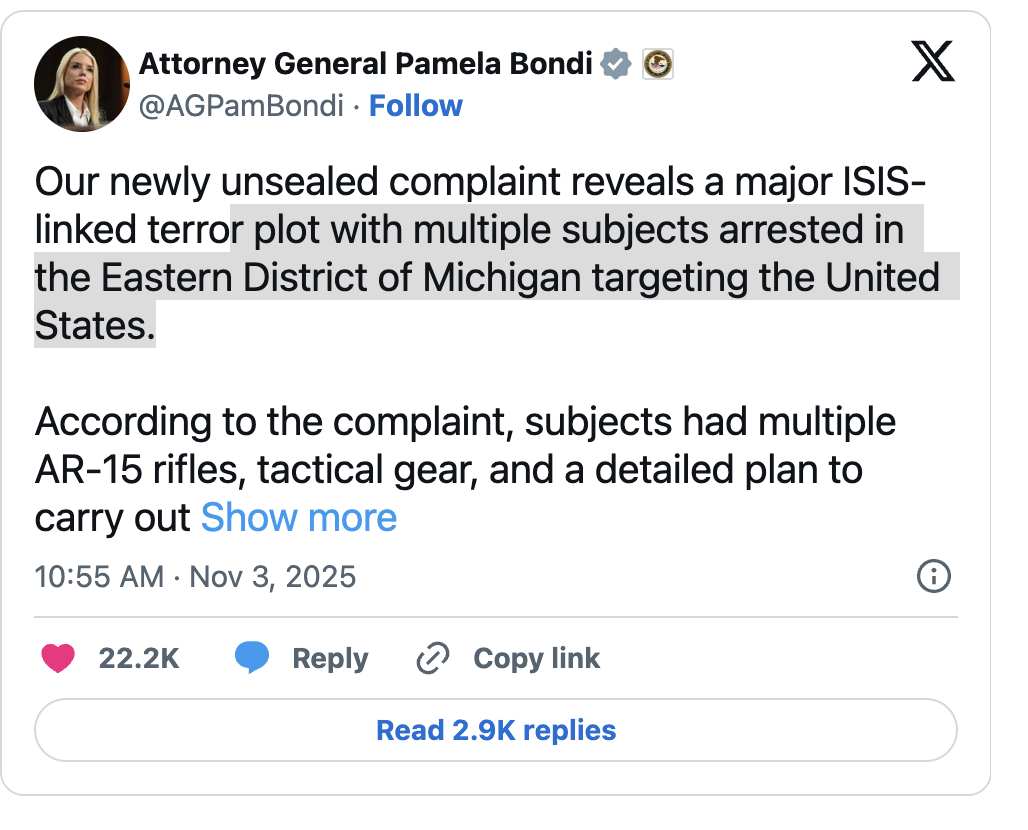
For many in Detroit’s queer community, the news felt like a near miss, another reminder that celebration and survival are often forced to coexist.
Halloween weekend is sacred ground in queer nightlife, a night where drag queens reign as deities, where chosen families gather in costumes and glitter to defy erasure. That such a night was allegedly chosen for violence cuts deep.
Detroit native and LGBTQ+ organizer Cameron “Cam” Wells, who frequents Ferndale’s clubs, said the revelation left him shaken.
“They called it ‘Pumpkin,’ like a joke,” Wells said. “But we know the truth — they wanted to make a massacre out of our joy. Out of the one night we get to be as loud and beautiful as we want.”
The alleged plot echoes a painful lineage of attacks on queer spaces, from Pulse Nightclub in Orlando (2016) to Club Q in Colorado Springs (2022). In each case, queer celebration became a target precisely because it was a defiance of fear.
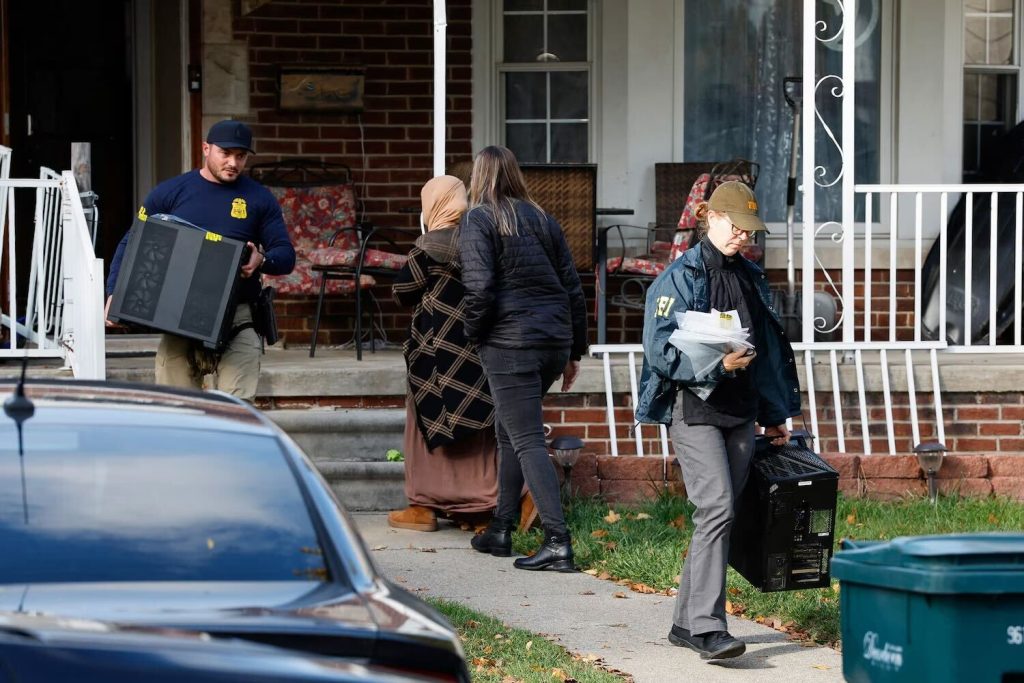
What alarms investigators, and terrifies community leaders is the age of those involved. Ali and Mahmoud are both under 21. Their alleged co-conspirator, “Athari,” is a minor.
The FBI says social media reviews revealed extremist content shared among the group, ISIS propaganda repackaged in the algorithms of a digital adolescence.
Dr. Lydia Hasan, a counterterrorism expert, said that the case underscores “the new frontier of radicalization where ideology meets isolation.”
“We’re seeing youth drawn into violent extremism not out of ideology alone, but out of loneliness, masculinity crises, and digital echo chambers,” Hasan said. “And when you add queerphobia into that mix, it becomes combustible.”
Detroit’s queer spaces have long doubled as sanctuaries, places built from the ashes of exclusion. Yet as news of the alleged plot spread, bar owners scrambled to reinforce safety plans, contact local police, and reassure patrons that their doors would remain open.
Ferndale bar owner Tina Morales, who runs The Lantern, said she’s increasing security but refuses to close her doors.
“They want us to be afraid,” Morales said. “But if we stop dancing, they win. Our joy is our rebellion.”
FBI Director Kash Patel said in a statement that the arrests were “the result of months of tireless investigative work” and that the operation “likely saved many lives.”
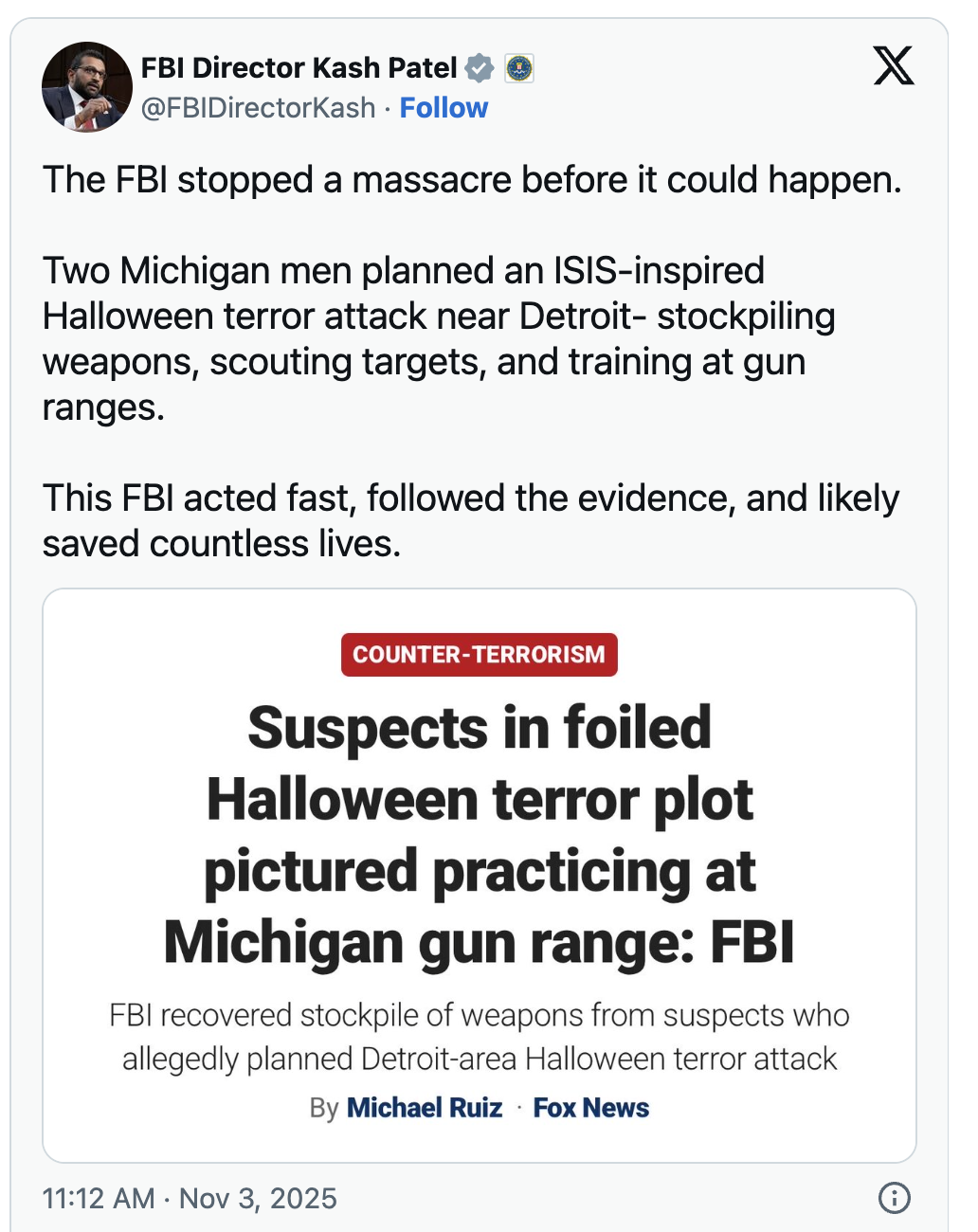
But queer Detroiters know safety is not a static condition, it’s something fought for, built, and rebuilt after every threat.
The arrests may mark the end of one plot, but they expose a deeper truth: violence against queer people in America is not isolated. It is ideological, cultural, and systemic, a reflection of the nation’s unfinished reckoning with hate.
As Wells put it, “We survived another night. That’s the miracle. But survival shouldn’t have to be the bar.”